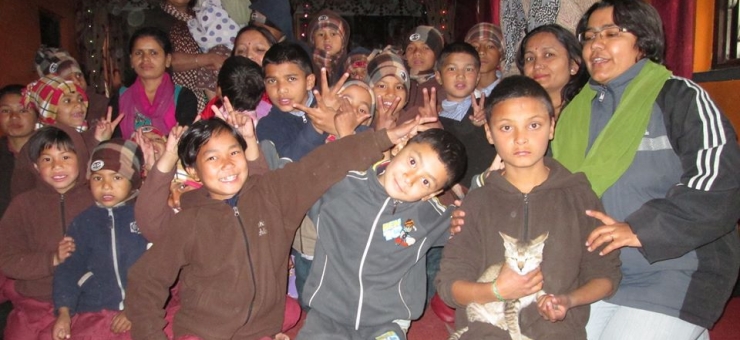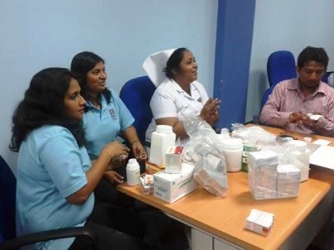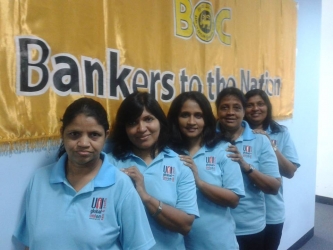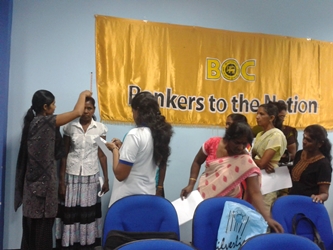Asia Pacific celebrated International Women’s Day

Many trade unionists and affiliates in Asia Pacific actively joined the national campaigns and events during International Women's Day to promote gender equality.
In Nepal, the UNI Nepal Liaison Council (UNI NLC) visited an orphanage home to start a new movement - cultivating a culture that respects gender equality among children. UNI NLC hopes that by educating and encouraging girls and boys to respect each other from a young age, gender discrimination and social sterotyping attitudes will slowly phase out. In its new campaign slogan “Let’s start from our homes by treating our sons and daughters equally”, UNI NLC hopes to convince the public on the importance and plausiblity of a gender-equality society.

In Sri Lanka, UNI Sri Lanka Liaison Council (UNI SLAC) Women Committee organized a health camp for needy women in Jaffna, 350 km away from the capital city Colombo. In cooperation with Jaffna Hospital, the health camp provided basic health counseling and check up including for blood sugar level and poor eyesight. The health camp also distributed medicines and spectacles, and held an informative lecture on healthy living. The event was a great success in raising awareness on women’s health and demonstrated the strength and teamwork of the women in UNI SLAC.




In Japan, female and male union officials from UNI LCJ affiliates joined 803 people (471 women and 332 men) at a national rally organized by Japan Trade Union Confederation (JTUC-Rengo) in Tokyo on 6 March 2014. The rally this year called for the ban of gender harassment and maternity harassment in the workplaces. Roses, the symbol of respect for women and human rights, were also distributed to pedestrians to raise awareness on the promotion women’s rights and gender equality. Gender inequality is one of the main challenges in Japanese trade unions. The three main targets of Japanese trade unions are to
-eliminate inequality on wages and working conditions between men and women
-promote the practice of and review the Equal Employment Opportunity Law, the amended Child Care, and Family Care Leave Act
-improve inclusive working conditions of part-time workers.
Participants agreed on the importance of reducing working hours and increasing productivity for both male and female workers. This will enable women to continue working and develop the same career as men even after marriage, childbirth, and motherhood.


